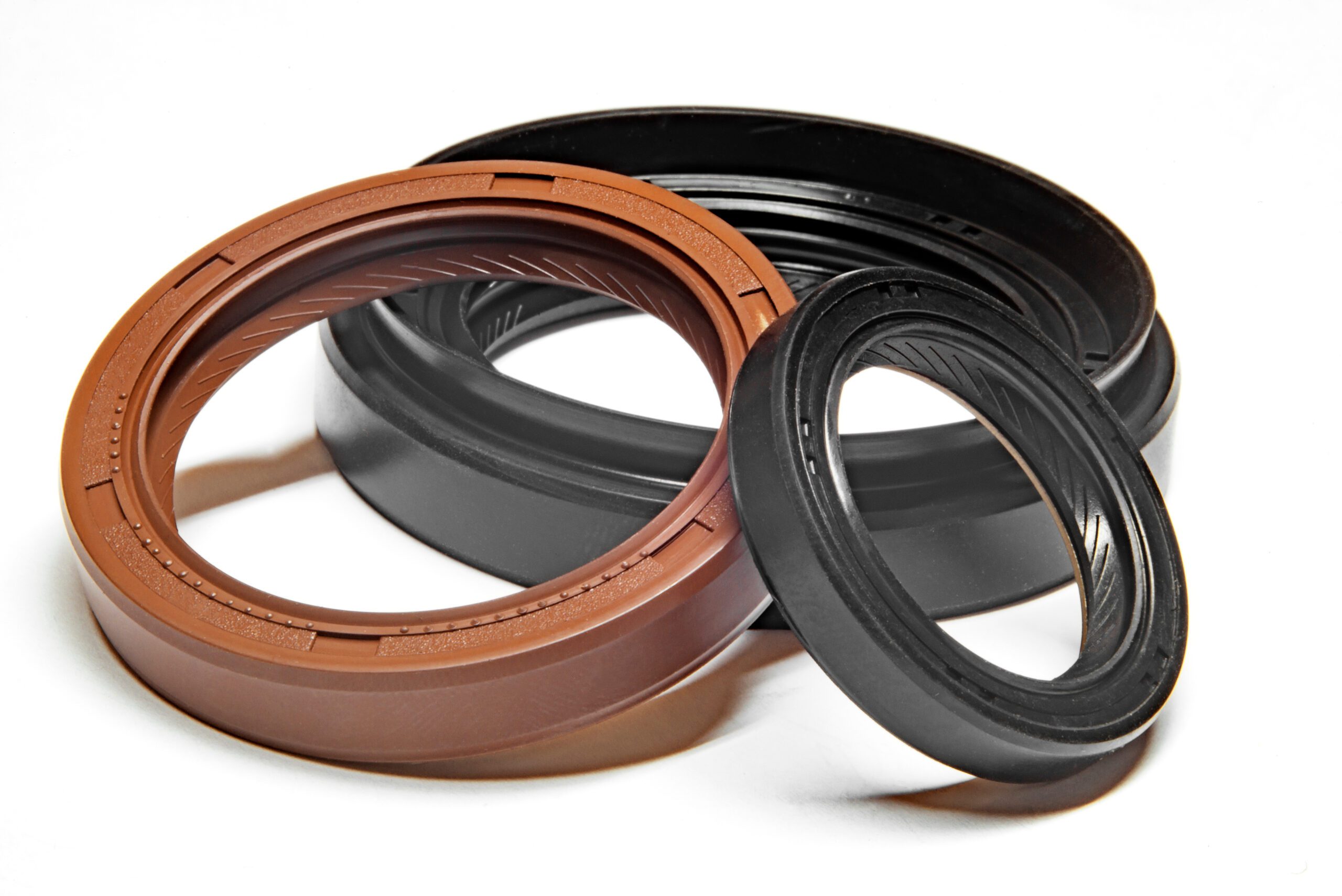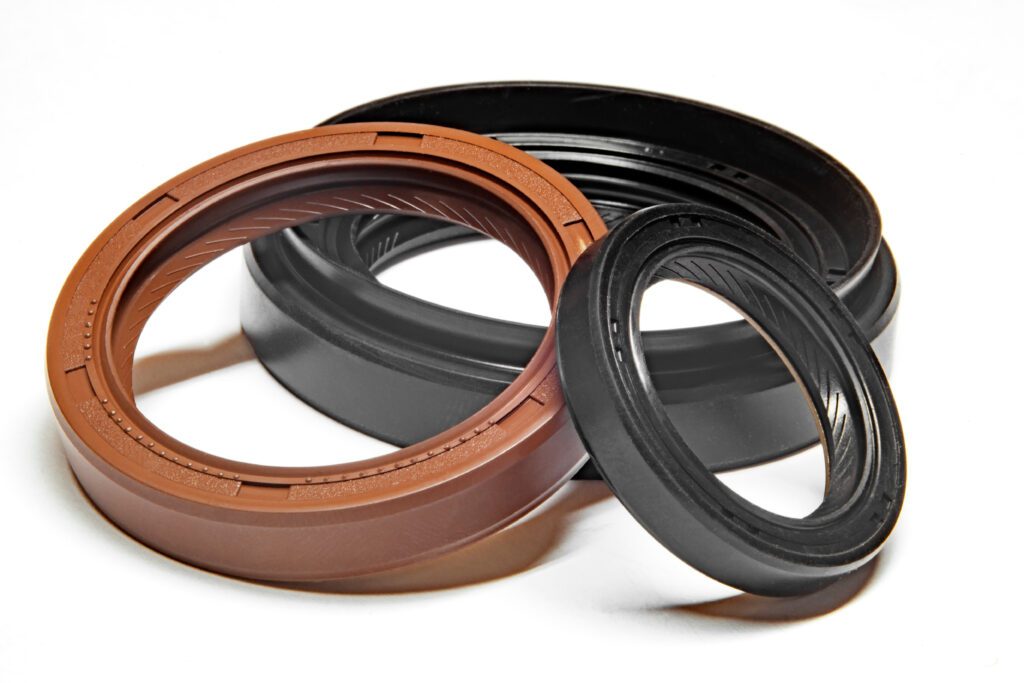
85+ Years of Service and Dedication
Family Owned. Family Operated. USA Made.
High-Performance Industrial Bearing Seals for Harsh Environments: Comparing Common Seal Types
Industrial bearings play a crucial role in the majority of modern machine applications. However, the bearing’s performance and longevity can both be severely impacted by harsh environmental conditions, which are common in many modern industrial operations.
Specialized bearing seals are therefore critical to protect internal components from water, dirt, and contaminants. Otherwise, even minor amounts of moisture ingress can significantly hinder the bearing’s mechanical efficiency over time and drastically reduce its service life.
Let’s take a closer look at some of the high-performance bearing seal options that BSC commonly uses for extended performance in today’s industrial environments.
An Overview of High-Performance Industrial Bearing Seal Options:
Lip Seals:
Lip seals are perhaps the most common type of contact seal used across many of today’s industrial bearing applications. Lip seals are generally constructed with a rubber sealing element bonded to a steel insert to provide increased strength and rigidity. Typically, the seal uses a flexible lip that extends above the circumference. That lip continually rubs against the rotational shaft, creating a physical barrier that prevents the entry of contaminants while retaining lubricant.
We have the ability to help you find custom lip-sealed bearings in single-lip, double-lip and even triple-lip configurations:
Single-Lip Seal – The single-lip configuration is a relatively simple seal manufactured with a flexible lip that makes contact with the rotating shaft or spindle on which the bearing is installed. Single-lip seals provide basic protection against contaminants but may not be suitable for extremely harsh conditions.
Double-Lip Seal – In double- or dual-lip seals, there is a second lip which acts as an extra barrier, reducing the risk of moisture or contaminants entering the bearing. Depending on the type of double lip seal, it can also act to keep lubrication from leaking out of the bearing.
However, while the continuous pressure of a lip seal improves sealing reliability for harsh industrial environments, the side effect is continuous friction. The increased friction and resulting wear on bearing components limits the use of lip seals in many high-speed applications such as CNC machine spindles and rotating shafts. For these applications, a high-performance non-contact seal configuration is often required.
Labyrinth Seals:
Labyrinth seals are the most common type of non-contact/contact-free (CF) seal used for modern industrial equipment. Essentially, “contact free” means that the seals are effective in preventing the entry of dust and particles without creating friction against the shaft or other rotational apparatus.
These seals consist of multiple non-contacting fins or winding paths that create a expulsive route for contaminants. The complex maze-like, labyrinthine arrangement is what gives labyrinth seals their name. It effectively creates multiple barriers which prevents contaminants and splashing liquids from hitting the bearing.
Bearing Isolator Seals:
A unique type of non-contact seal, bearing isolators typically consist of two main components: a rotor and a stator. The rotor is attached to the rotating shaft, and the stator is fixed to the housing or stationary component of the equipment. The two-piece design of bearing isolators allows for easy installation and removal without the need to disassemble the entire machine, simplifying maintenance and reducing equipment downtime. As an application example, BSC uses isolator seals in the design of tension levelers.
Moreover, the rotating action of the bearing isolator helps to push contaminants away from the sealing interface, facilitating a self-cleaning effect. This feature enhances the effectiveness of the seal over time, maximizing service life while improving seal performance in harsh industrial environments.
Other Types of High-Performance Bearing Seals:
Exclusion Seals – As the name suggests, these seals are specifically designed to exclude contaminants from the bearing – a common type being V-ring seals or V-seals. Exclusion seals often combine different sealing elements to provide comprehensive protection in harsh environments.
Pump Seals – Using the force of springs to push two faces of a seal together of different material depending on the application. These mechanical seals use constant force and self adjusting faces to limit bearing contamination. Often used in conjunction with packing they are effective in preventing contamination ingress.
Hydraulic Seals – Wiper seals, U-cup seals, piston seals, guide rings and certain o-rings are all options in the industrial aftermarket that BSC can provide. These innovative high-performance seals are effective, depending on the type of application and can provide good protection in harsh environments.
Gamma Seals – Also referred to as flinger seals or deflector rings use a rubber sealing member along with a stamped steel case. The rubber sealing member is not attached to the case and is usually held in place by the force of its elasticity over the element. They are commonly used in industrial equipment applications.
High-Performance Bearing Seal Materials for Harsh Environments
In addition to the bearing seal design and construction, the chosen seal materials are also critical in determining the seal’s specific performance characteristics.
We work with special seal companies to design and evaluate the specific needs of the application. To provide specialized rubber materials, elastomers, as well as integrated plastics and metals to achieve the exact desired mechanical properties and longevity needed for each unique application.
When selecting the best industrial bearing seal material for harsh environments, it’s essential to consider the specific conditions of the application at hand. Generally, these considerations should include operational temperatures, moisture levels, chemical/contamination types, mechanical stress analysis, as well as the required rotational speeds. With these factors in mind (amongst many others), we are able to select the most effective and reliable bearing seal possible for virtually any industrial application.


